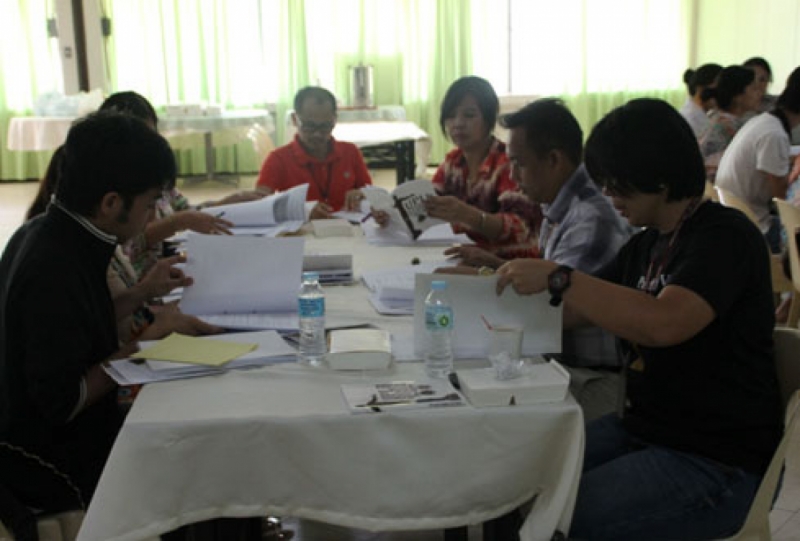- Student Services
- OSAM Account Creation
- Financial Assistance▸
- Guidance Services▸
- Student Housing▸
- Student Organizations▸
- University Clearance
- About OVCSA
- What Is OVCSA?
- What Is OSAM?
- News
- OVCSA Vice Chancellor
- OVCSA Executive Committee
- OVCSA Offices/Units
- Contact Us
- Downloads
- SAGA Files▸
- OSG Brochures And Reports
- Academic Calendar
- Telephone Directory
- OVCSA Transaction Booklet
- OVCSA Accomplishment Report
- UPLB Student Handbook 2023
- Registered Organizations
- Apply For Registration
- Registration Guidelines
- UNO Form 1
- UNIK Form 1
- UNO-UNIK Guidelines
- Scholarships
- Iskolar ng Bayan Program
- SAGA Program
- SAGA/SUPSA Vacancies
- Student Learning Assistance System (SLAS)
- Tuition Loan/SLB Program
- Cash Loan Assistance Program (CLAP)
- UP Student Insurance Policy
- Dormitories
- Dorm Fees
- Residence Hall Agreement
- Dorm Application Guidelines
- Transient Accommodation Guidelines
- SAGA Application Checklist
- SAGA Separation form
- SAGA Unit Application Form
- SAGA Change Unit Coordinator Form
- Data Privacy Consent Form
OSA conducts dialogue on the proposed code of student conduct
13 March 2015 | CHHagosojos |
The Office of Student Affairs conducted a dialogue with the student leaders and representatives of university offices regarding the proposed code of student conduct on March 13, 2015 at the Makiling Hall, Student Union Building.
To adopt or not to adopt?
The aim of the dialogue is to find out whether to adopt the 2012 Code of Student Conduct of UP Diliman or to retain the UP Code of Conduct used in UPLB, and to identify possible revisions for the code of conduct to be used.
Dr. Portia G. Lapitan, Vice Chancellor for Academic Affairs emphasized how UPLB cannot just adopt the proposed code of student conduct because the uniqueness of UPLB may not be reflected in the 2012 Code of Student Conduct of UP Diliman.
From SDT to SDC
Atty. Eleno Peralta, Chairman of the SDT, explained and clarified the provisions of the 2012 Code of Student Conduct of UP Diliman to the attendees. "Kapag inadopt natin ang UP Diliman Code of Student Conduct, mawawala na po ang SDT (Student Disciplinary Tribunal)…mabubuo ang Student Disciplinary Council (SDC) na may chairman at may apat na members. Ang qualification ng chairman at ng apat na members ay iisa lamang: regular tenured faculty," he said. (If we adopt the UP Diliman Code of Student Conduct, the SDT will be replaced by the Student Disciplinary Council. The SDC consists of a chairman and four members. The only qualification to be part of the council is you have to be a regular tenured member of the faculty).

Disciplinary procedures in the proposed code of student conduct
The participants were divided into three groups to discuss the components of the proposed code of student conduct.
One group discussed the Procedures for Cases of Intellectual Dishonesty. According to them, the corrective measures in the code of conduct regarding cases of intellectual dishonesty are too harsh. They suggested having counseling and community service as corrective measures instead of immediately suspending and expelling the student involved.
The second group discussed the Procedure for Other Acts of Misconduct. They questioned the composition of the SDC, pointing out the continuity and consistency of decisions given the 2 to 3-year term allowed to the members of the SDC.
The third group discussed the Procedure for Misconduct of Student Organizations. According to them, unrecognized organizations who committed a misconduct should not be sanctioned as an organization but individually as students. Additionally, they said that in the case of an organization's misconduct, all active members of the organization should be reprimanded, not only the officers.
Group recommendations
There was an agreement among the groups that if the 2012 Code of Student Conduct of UP Diliman will be adopted, the SDC should include not only tenured members of the faculty, but also students, parents, and representatives from the administration.
At the end of the dialogue, the participants decided that there is a need for more time to study and discuss the 2012 Code of Student Conduct of UP Diliman.
Atty. Peralta clarified that the SDT will continue to use the UP Code of Conduct while the proposed code of student conduct is still being reviewed.